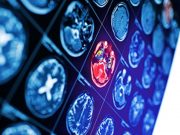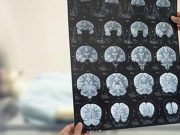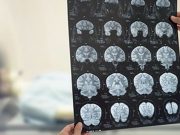Tag: Heart / Stroke-Related: Stroke
Risk for Ischemic Stroke Up With Antidopaminergic Antiemetic Use
Increase in risk greatest for metopimazine and metoclopramide; risk for ischemic stroke may be higher in first days of use
Videogaming Rehabilitation Studied in Stroke Patients
Use of self-managed, at-home video game rehabilitation compared to other methods for upper-extremity therapy
NOAC Use Not Tied to ICH in Stroke Patients Treated With Alteplase
Recent use of non-vitamin K antagonist oral anticoagulant not linked to increased risk for intracranial hemorrhage with IV alteplase
More Intensive LDL-C Lowering May Cut Recurrent Stroke Risk
More intensive LDL-C-lowering with statin-based therapies linked to reduced risk for recurrent stroke for patients with evidence of atherosclerosis
Bridging Therapy May Be Better for Large Vessel Occlusion Stroke
Better outcomes associated with IV thrombolysis followed by mechanical thrombectomy versus mechanical thrombectomy alone
Poor Outcomes Common With COVID-19, Acute Ischemic Stroke
Factors associated with poor functional outcomes included age older than 60 years, diabetes mellitus, increased NIHSS, LVO
ASA: Endovascular Therapy Studied in Large Ischemic Stroke
Better functional outcomes but more intracranial hemorrhages seen with endovascular therapy plus medical care versus medical care alone
Time to Benefit Estimated for Intensive BP Control to Prevent Stroke
About 1.7 years of more intensive hypertensive treatment required to prevent one stroke per 200 adults aged 65 years or older
ASA: Scoring System May Predict Stroke Risk in COVID-19 Inpatients
Score based on six clinical factors including no fever at time of admission, no history of pulmonary disease, high white blood cell count













